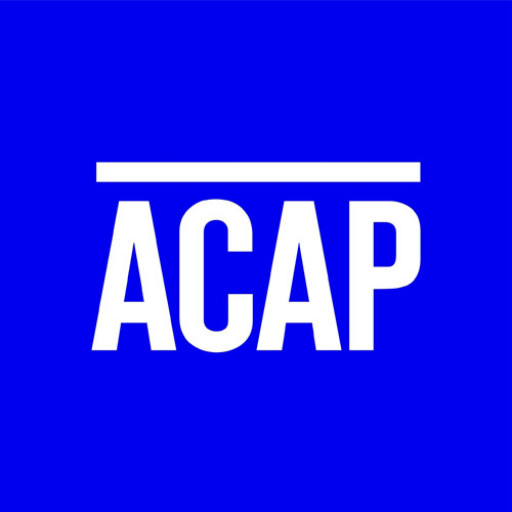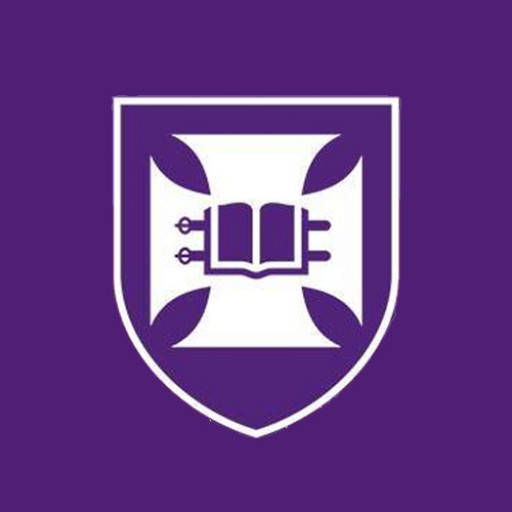Program Overview
The Bachelor of Counselling at the Australian College of Applied Psychology (ACAP) is designed to prepare students for a rewarding career in helping others through the development of essential counselling skills and theoretical knowledge. This comprehensive program provides a solid foundation in counselling principles, psychology, human development, and ethical practice, equipping graduates to work effectively in diverse settings including mental health services, community organizations, educational institutions, and private practice.
Throughout the course, students will engage with coursework that covers core areas such as interpersonal communication, client assessment, case management, therapeutic techniques, and cultural competency. Practical experience is a key component of the program, with supervised placement opportunities allowing students to apply their learning in real-world environments, build confidence, and develop professional skills. The curriculum emphasizes an evidence-based approach, encouraging students to critically analyze counselling theories and adapt their methods to meet individual client needs and cultural contexts.
The program is delivered by experienced educators and industry professionals who bring real-world insights into the classroom. Students will learn about the importance of ethical considerations, confidentiality, and professional boundaries, ensuring they are well-prepared to uphold the standards of the counselling profession. ACAP’s supportive learning environment fosters personal growth, individual attention, and collaborative learning to enhance the educational experience.
Graduates of this program will be equipped with the knowledge and skills to pursue diverse career pathways in counselling and human services. They will be prepared to undertake further study in specialised areas such as mental health counselling, marriage and family therapy, orclinical psychology. The program’s emphasis on practical skills, ethical practice, and multicultural awareness positions graduates to make a meaningful difference in the lives of their clients and communities.
Program Duration and Delivery
The Bachelor of Counselling is typically delivered over three years of full-time study, with options for part-time study to accommodate working students. The program combines face-to-face lectures, interactive workshops, online learning modules, and supervised placement to provide a flexible and comprehensive educational experience. Students will benefit from state-of-the-art facilities and access to professional counselling practitioners who serve as mentors and supervisors during practicum placements.
Career Opportunities
Graduates of the Bachelor of Counselling can find employment in a variety of settings, including mental health clinics, community health organizations, schools, crisis intervention services, rehabilitation centers, and private practice. They may also pursue roles such as counsellors, case managers, mental health support workers, or community outreach coordinators. The program lays the groundwork for ongoing professional development and lifelong learning, encouraging students to stay current with emerging trends and research in the counselling field.
Admission Requirements
Entry into the Bachelor of Counselling program requires completion of high school or equivalent. Specific prerequisites, English language proficiency, and other criteria may apply, and prospective students are encouraged to consult the ACAP admissions guidelines for detailed information.
Join the Australian College of Applied Psychology and take the first step toward making a positive impact in people's lives through professional counselling, supported by a program that combines academic excellence, practical training, and a commitment to ethical practice.
Program Content
The Bachelor of Counselling at the Australian College of Applied Psychology (ACAP) is designed to equip students with the theoretical knowledge, practical skills, and ethical understanding necessary to become effective and compassionate counselling professionals. The program covers a wide range of topics essential for understanding human behaviour, mental health, and the dynamics of the counselling relationship. Students will explore core areas such as psychological theories, communication skills, ethics in counselling, developmental psychology, mental health conditions, and diverse counselling approaches.
Throughout the coursework, students will engage in practical training provided through supervised clinical placements, which enable them to apply their theoretical knowledge in real-world settings. The program emphasizes the development of interpersonal skills, active listening, empathy, and competency in assessment and intervention strategies. Students also learn about cultural competence and diversity, ensuring they are prepared to work effectively with clients from varied backgrounds and experiences.
The curriculum incorporates modules on lifespan development, psychological assessment, crisis intervention, and the management of complex cases. Additionally, students gain insights into managing ethical dilemmas, maintaining professional boundaries, and adhering to legislative requirements relevant to counselling practice in Australia. The program aims to foster reflective practice, encouraging students to continually evaluate and improve their therapeutic approaches.
By integrating academic learning with practical experience, the Bachelor of Counselling prepares graduates for employment in a variety of settings, including community health services, schools, mental health clinics, and private practice. Graduates will be well-equipped to support individuals experiencing mental health challenges, life transitions, or personal growth needs. The program also provides a solid foundation for those wishing to pursue further studies or specializations within the counselling and mental health fields.
Participation in this program ensures students develop a comprehensive understanding of contemporary counselling techniques and a professional attitude, enabling them to make meaningful contributions to the wellbeing of their clients and community.
Program requirements for the Bachelor of Counselling at the Australian College of Applied Psychology include a combination of academic coursework, practical training, and assessment components. Prospective students must hold a completed high school diploma or an equivalent qualification that satisfies entry criteria. International students are typically required to demonstrate English language proficiency through standardized tests such as IELTS, with a minimum overall score usually set at 6.5, with no band less than 6.0, though specific requirements may vary. Applicants are also expected to provide a personal statement outlining their motivation for studying counselling and demonstrating relevant qualities such as empathy, communication skills, and a commitment to ethical practice. Some programs may require a police clearance or background check to ensure suitability for working with vulnerable populations. The curriculum is designed to meet accreditation standards and comprises core units covering counseling theories, ethics, communication skills, psychological development, and multicultural considerations. The program emphasizes practical experience through supervised placements in community settings, hospitals, or private practices, enabling students to develop real-world skills under professional supervision. Students must complete a specified number of hours in placement to graduate, often around 100-200 hours, depending on the particular intake. Additionally, students are assessed through written assignments, presentations, case study analyses, and examinations to ensure comprehensive understanding of theoretical frameworks and practical application. To progress through the program, students need to maintain a minimum academic standard, typically a pass grade or higher in all core units. The college strongly encourages students to participate in seminars, workshops, and extracurricular activities that enrich their learning experience and professional development. Successful completion of all coursework, placements, and assessments allows graduates to be eligible for registration with relevant professional bodies such as the Australian Counselling Association (ACA) or the Psychotherapy and Counselling Federation of Australia (PACFA). These registration pathways are essential for practice as a qualified counsellor. The program also advises students to familiarize themselves with ongoing continuing professional development requirements and ethical codes post-graduation to ensure sustained professional competence.
The Australian College of Applied Psychology offers various financing options for students enrolled in their counselling programs. prospective students can access government-funded schemes such as the Higher Education Loan Program (HELP), which includes concessions like FEE-HELP, allowing eligible students to defer tuition fees until they are financially able to repay the loan. This scheme significantly reduces the upfront financial burden and provides greater accessibility to higher education in counselling disciplines. Additionally, the college provides payment plans designed to facilitate manageable installment arrangements, enabling students to spread out tuition fees over the duration of their studies. These plans are flexible and tailored to individual financial situations, making it easier for students to pursue their educational goals without undue financial stress.
Scholarships may also be available to outstanding applicants or students demonstrating financial hardship. These scholarships aim to support diversity and encourage participation from underrepresented groups in the counselling field. The college often collaborates with various industry partners and community organizations to develop bursaries and financial assistance programs for students demonstrating exceptional commitment to their professional development or facing economic difficulties.
International students enrolling in counselling programs at the college should consider additional funding resources such as private loans, scholarships, or sponsorships. While international students are generally ineligible for domestic government loans, they can explore financial aid options through private lenders or institutional scholarships, if available.
Furthermore, students are encouraged to consult with the financial aid office at the Australian College of Applied Psychology for personalized advice and assistance regarding funding options, eligibility criteria, and application procedures. The college aims to support its students financially by providing comprehensive guidance to ensure that all eligible students can access the necessary funding to complete their studies successfully. Overall, financing studies at the Australian College of Applied Psychology is accessible through a combination of government schemes, institutional payment plans, scholarships, and external funding sources, making higher education in counselling increasingly attainable for a diverse range of students.
The Australian College of Applied Psychology offers a comprehensive program in Counselling designed to equip students with essential skills and theoretical knowledge to pursue a career in mental health and counselling practice. The program emphasizes practical application and experiential learning, enabling students to develop effective communication, assessment, and intervention techniques suitable for diverse client populations. Throughout the course, students explore core topics such as psychological theories, ethical considerations, multicultural competence, and the principles of person-centered counselling. The curriculum integrates both face-to-face instruction and hands-on practicum placements, fostering real-world experience and professional readiness. Upon completion, graduates are prepared for employment in various settings, including community services, private practice, schools, and health organizations. The program also aligns with industry standards and complies with accreditation requirements, ensuring that students meet the professional benchmarks required for registration as a counsellor or mental health practitioner in Australia. The college’s dedicated faculty include experienced practitioners and academics who provide mentorship and support throughout the course. The program further offers opportunities for specialization and advanced training in areas such as family counselling, substance abuse, and trauma support. Students benefit from a supportive learning environment, access to modern facilities, and resources designed to enhance their educational experience. With a strongly emphasis on ethical practice and cultural sensitivity, the program aims to produce competent and compassionate practitioners capable of making a positive impact in their communities. The academic calendar includes semester-based intakes, and prospective students are encouraged to review the admission criteria and application procedures on the official college website. Overall, the Counselling program at the Australian College of Applied Psychology prepares graduates to meet the evolving needs of Australian society and contributes to the development of a well-trained mental health workforce.







